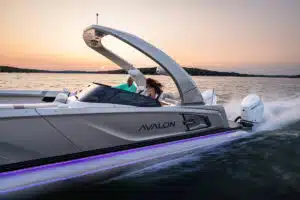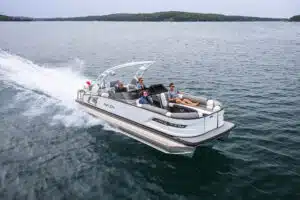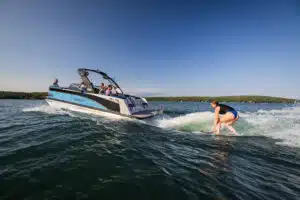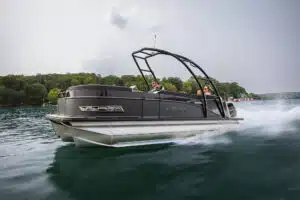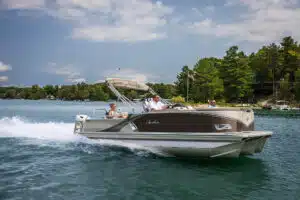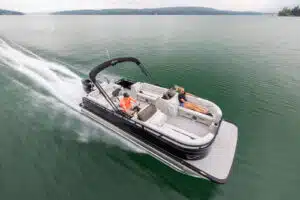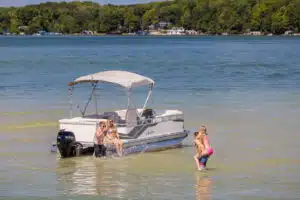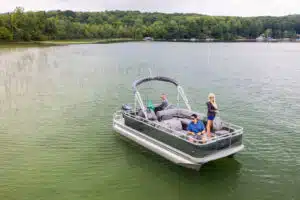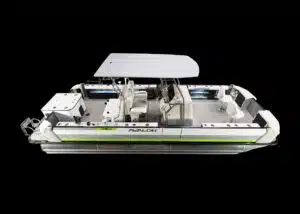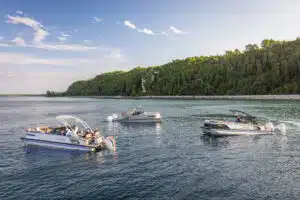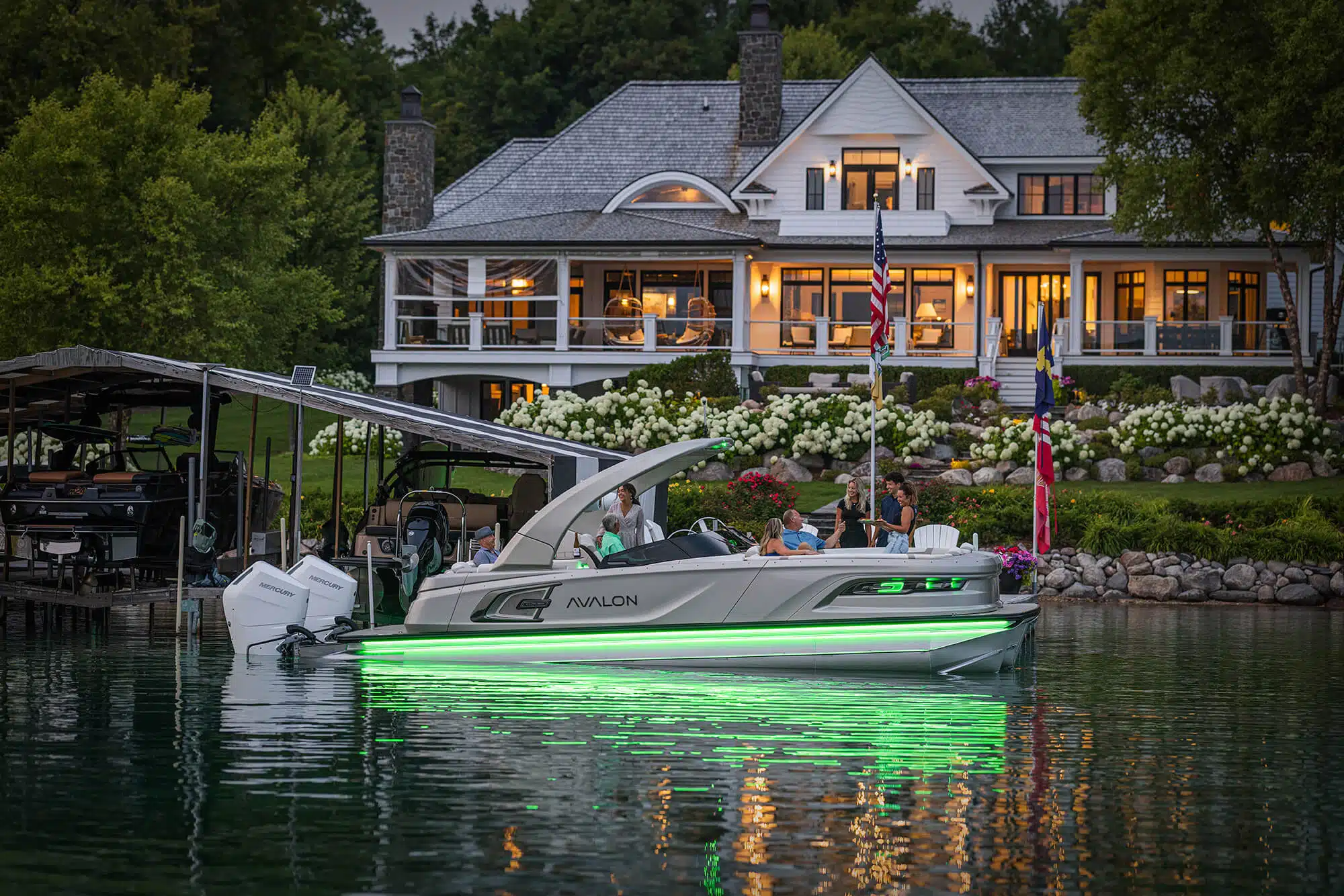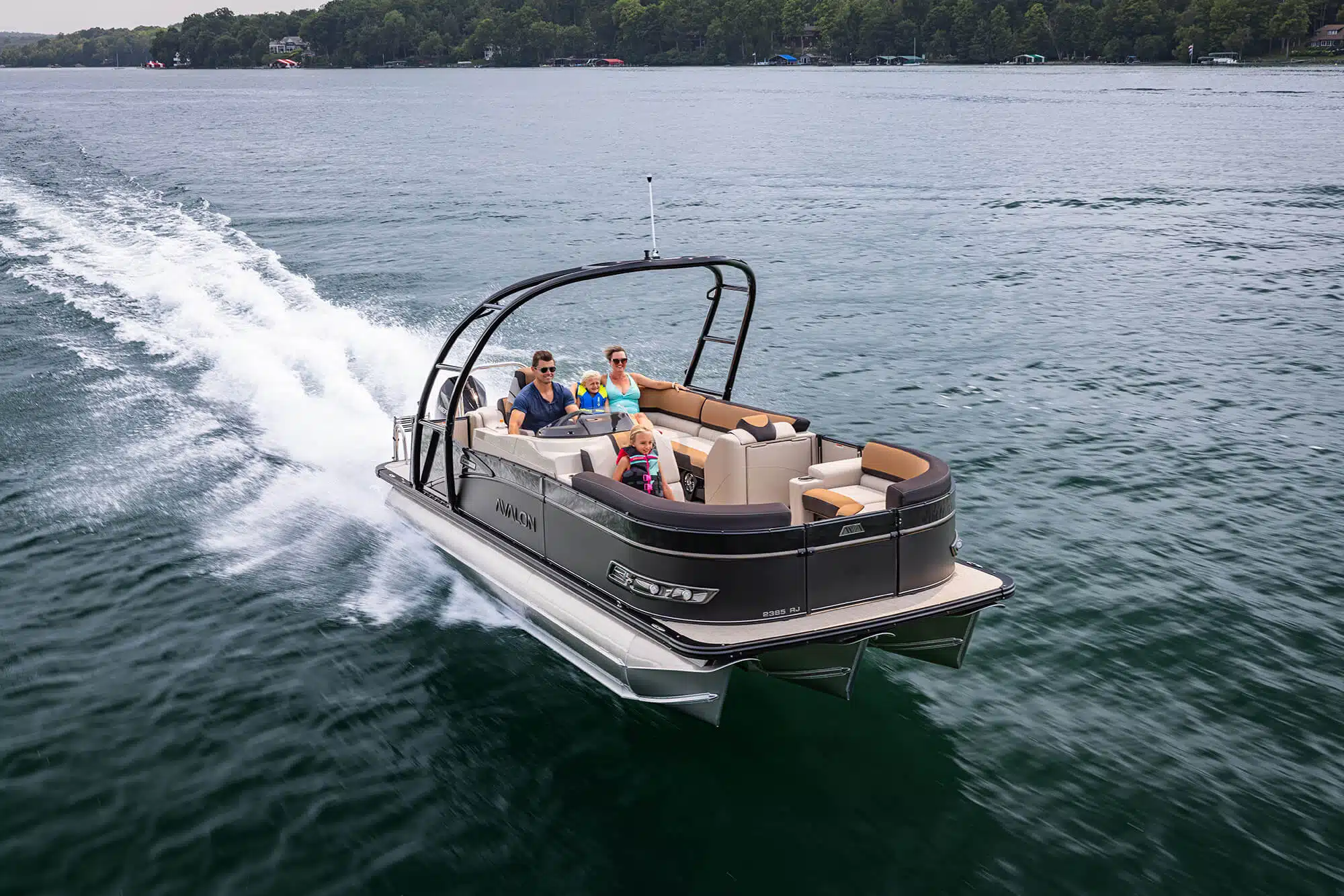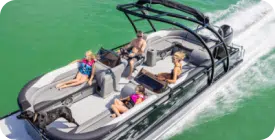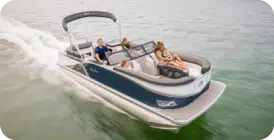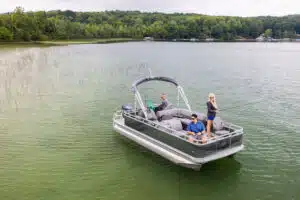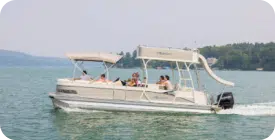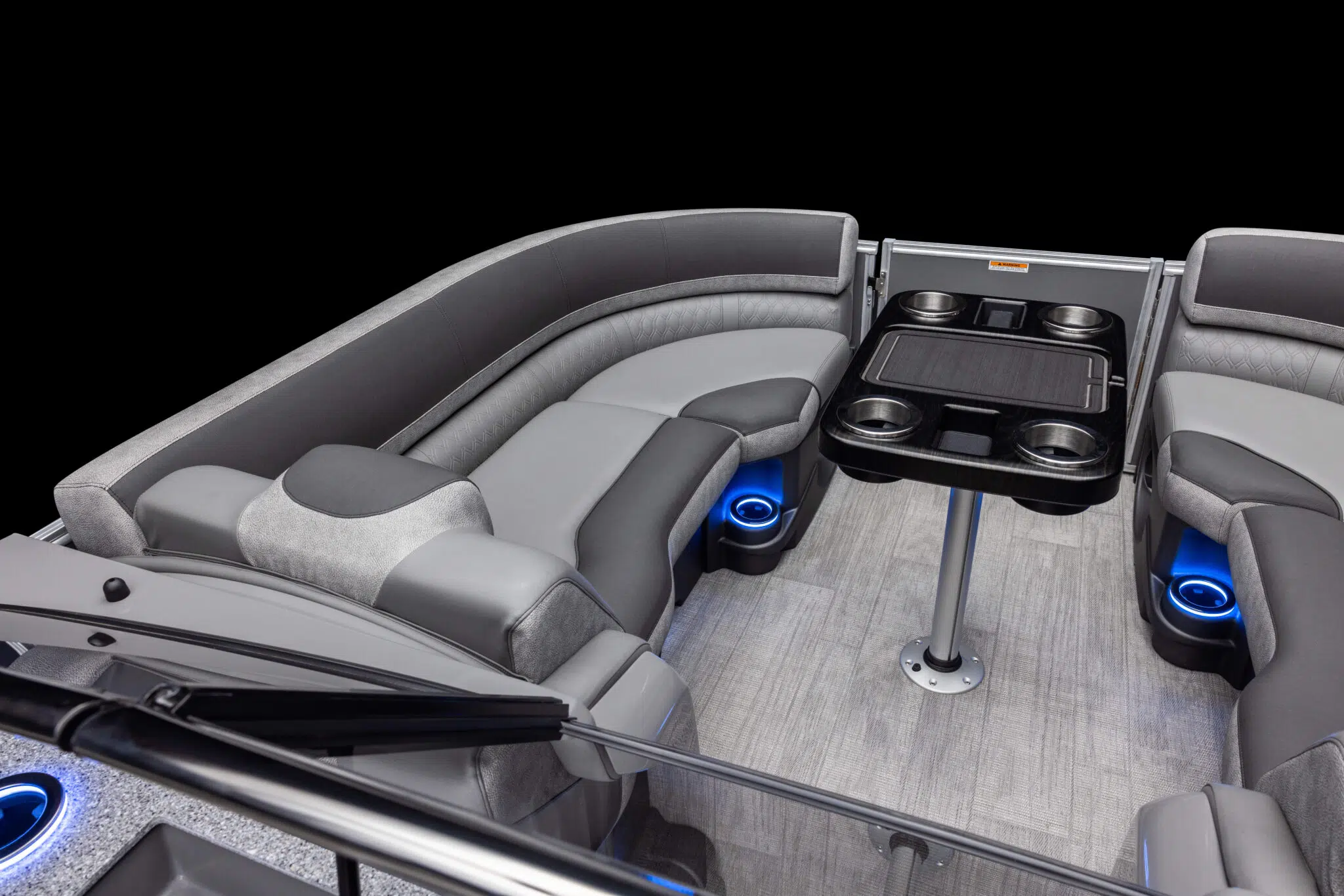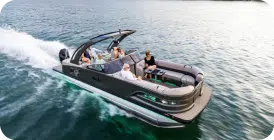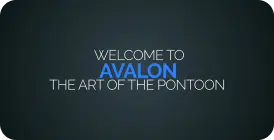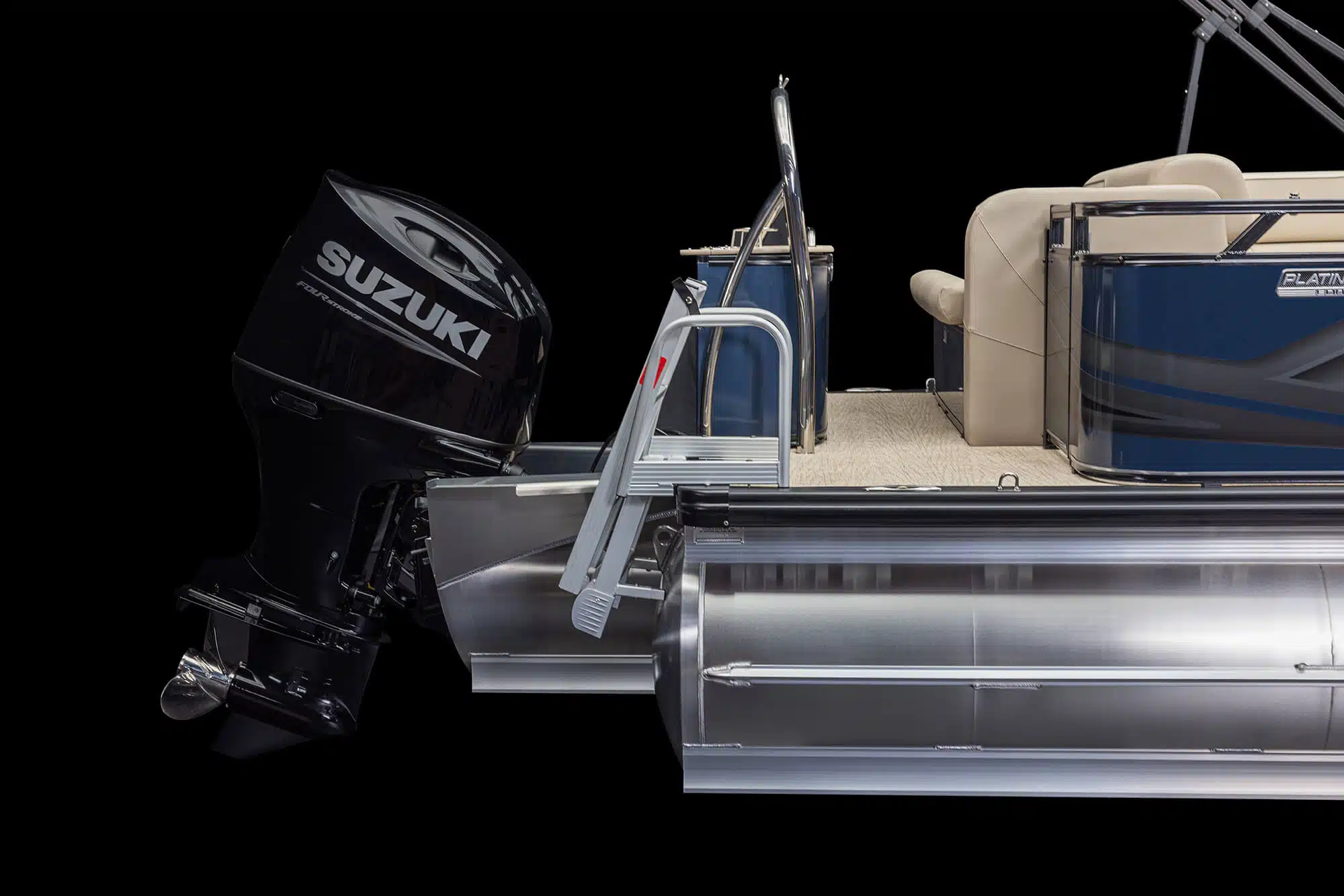Eager to get out on the water but still unsure how to select the ideal pontoon boat engine?
Numerous factors are involved in deciding what horsepower option of pontoon boat engine is most appropriate to power your precious vessel. Outfitting your pontoon with the perfect motor for your unique needs is key to achieving ultimate satisfaction.
Neither all pontoons nor all engines are created equal. Knowing what sets each variation apart is crucial to properly select the right pontoon boat engine option.
Here are some important considerations for choosing the right option for your pontoon boat engine.
Engine Size and Capacity
Once you know the layout, length, and class of pontoon you’ve got your eye on, choosing the right engine capacity will be essential in creating the watercraft you’ve been dreaming of.
Today’s pontoon boat market is growing. Within it, a wide range of horsepower is offered, from as low as 9.9 or 100 up to 600 or even dual-engine selections. Pontoon boats have come a long way, and the capacity of outboard motors today is more impressive than ever.
Components of Your Pontoon Boat
Pontoons come in a range of layouts, and major factors in pairing your pontoon boat and engine are vessel length, capacity, and dry weight. Adding fuel and passengers reduces speed, so consider whether a crew will be on board. With each different type of pontoon boat, there is a unique set of considerations in regards to the right engine.
Design and Dimensions
Smaller pontoons offer a variety of engine options. Still, manufacturers usually limit the maximum engine size on shorter floor plans for safety reasons. For short bitoons, engines of 100 to 150 horsepower should be sufficient.
Bigger tritoon models tend to pair well with higher horsepower, with a range of choices available. It’s fine to put a smaller engine on a big boat, especially if you frequent a speed-limited lake. Consider these factors, plus how they impact steering capabilities.
The physics behind the boat’s design also makes hull length a factor in speed, with a bigger boat typically resulting in greater speeds due to less drag from the increased surface area of the boat atop the water.
Combination of Factors
Think pairing the same pontoon boat engine on different brands of boats will deliver equal results? Think again. Countless factors determine the performance of a pontoon boat and engine, so don’t expect two same engines on different boats to behave identically.
How a pontoon and its motor perform together is affected by numerous features. Dimensions, conditions, propeller type, and how equipment is used all make a difference. For instance, a deployed bimini top will reduce speed by creating more wind resistance.
Outboard engines are relatively consistent in their performance, but boaters should still manage their expectations realistically. To avoid disappointment, expect normal, subtle differences and variations across the range of combinations of pontoon boats and engine options.
Desired Boating Activities
Depending on how you plan to use your pontoon, be it for lounging, cruising, entertainment, or any combination of activities, the demands on the boat’s engine will be different. How you spend time on the water on your pontoon matters greatly in choosing the best engine option.
Water sports are a popular goal for pontooners and typically require a minimum of 150 horsepower for adequate speed and acceleration. Yet, if your plans primarily involve leisurely, slow-paced cruising, then 100 horsepower may suffice.
If speed is your ultimate goal, perhaps skip over 150 horsepower as a starting point and go straight to 250. For speed demons who simply can’t compromise on quickness, horsepower can go all the way up to 600. There are also dual-engine options for those with a serious need for speed.
Conditions of the Water
Where you intend to explore on your pontoon boat makes a big difference in deciding on the right option of engine for your pontoon boat.
It’s wise to be informed by the typical conditions and marine forecast of your pontoon’s future waters. Shallow or deep, current strength, choppiness, and average wave height will all impact getting the desired results from your boat and its motor. More challenging conditions may demand greater power.
Navigational Needs and Restrictions
A massive motor on a tiny lake can make for a dissatisfying experience. Research the desired boating area to be aware of any speed restrictions that would make a big engine unnecessary.
On the other hand, a vast body of water may demand a larger engine for quickly traveling longer distances. The wide range of horsepower options available should leave nothing to be desired, provided you know what you’re looking for.
Environmental Specifics
You probably have a specific lake or river in mind for your pontoon boat. Is the water fresh or salt? Increased buoyancy in saltwater facilitates greater speed. Marine life is also important to consider, as mossy buildup on the bottom of a pontoon causes speed reduction.
Elevation is another easily overlooked aspect of getting the most out of your pontoon boat engine option. Higher elevation leads to lower speed capacity, so boaters in elevated areas sometimes favor higher horsepower to compensate for this environmental effect.
Professional Knowledge
Experienced dealers possess a wealth of knowledge to guide you in selecting the ideal combination of pontoon boat and engine options. Plus, dealers can shine light on the best deals available. Manufacturer websites are also a great resource.
Expected Price Range
Different entry-level price points exist for each tier of pontoons. Shoppers can expect engines with 9.9 horsepower to start between $4,500 and $5,000 before add-ons for steering and rigging, whereas engines with 450 horsepower might start around $80,000 before steering and rigging.
Clearly, the price range for pontoon boat engine options is vast, so the advice of a reputable dealer can make a significant difference. If you’re still curious about the costs of certain features, explore the website of desired manufacturers for customization functions.
Pontoon Boat Engine Options: The Takeaway
Now that we’ve explored the various factors involved in choosing the optimal horsepower engine options for your pontoon boat, you should have a firm starting point to guide you in making the right decision.
A wide variety exists for pontoon boat engine options. Knowing what you hope to get out of your combination and understanding what considerations to make to achieve the desired results will be immeasurably valuable in successfully pairing your pontoon with the perfect motor.

